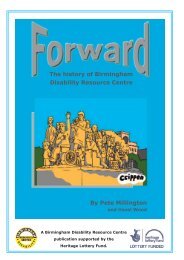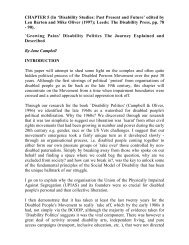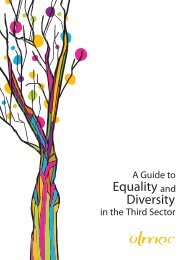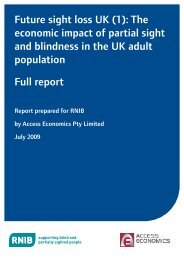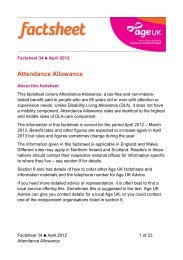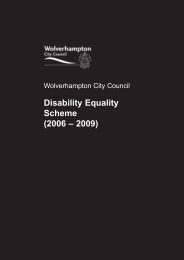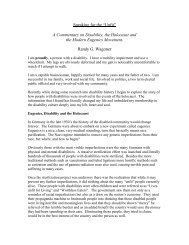What equality law means - Birmingham Disability Resource Centre
What equality law means - Birmingham Disability Resource Centre
What equality law means - Birmingham Disability Resource Centre
You also want an ePaper? Increase the reach of your titles
YUMPU automatically turns print PDFs into web optimized ePapers that Google loves.
would have been treated better by the employer. This is<br />
a ‘hypothetical’ comparator.<br />
contract worker<br />
data protection<br />
direct discrimination<br />
disability<br />
disabled person<br />
disadvantage<br />
discrimination arising from<br />
disability<br />
Under the Equality Act, this has a special meaning. It<br />
<strong>means</strong> a person who is sent by their employer to do<br />
work for someone else (the ‘principal’), under a contract<br />
between the employer and the principal. For example, a<br />
person employed by an agency to work for someone<br />
else (‘an end-user’) or a person employed by a<br />
privatised company to work on contracted out services<br />
for a public authority, may be a contract worker. The<br />
Equality Act makes it un<strong>law</strong>ful for the principal to<br />
discriminate against the contract worker.<br />
Safeguards concerning personal data are provided for<br />
by statute, mainly the Data Protection Act 1998.<br />
Less favourable treatment of a person compared with<br />
another person because of a protected characteristic.<br />
This may be their own protected characteristic, or a<br />
protected characteristic of someone else, eg someone<br />
with whom they are associated. It is also direct<br />
discrimination to treat someone less favourably<br />
because the employer wrongly perceives them to have<br />
a protected characteristic.<br />
A person has a disability if they have a physical or<br />
mental impairment which has a substantial and longterm<br />
adverse effect on that person's ability to carry out<br />
normal day-to-day activities.<br />
Someone who has a physical or mental impairment that<br />
has a substantial and long-term adverse effect on their<br />
ability to carry out normal day-to-day activities.<br />
A detriment or impediment – something that the<br />
individual affected might reasonably consider changes<br />
their position for the worse.<br />
When a person is treated unfavourably because of<br />
something arising in consequence of their disability, eg<br />
an employer dismisses a worker because of the length<br />
of time they have been on sick leave. The reason the<br />
worker has been off sick is because of their disability. If<br />
it is objectively justifiable to treat a person<br />
89




